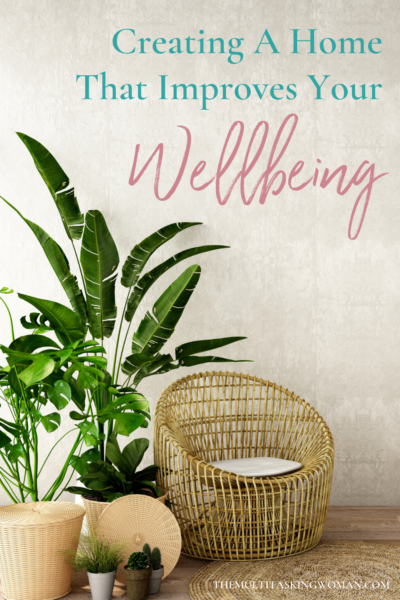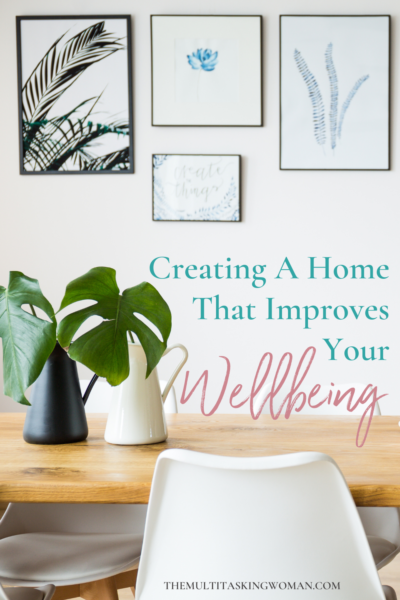We are all spending more time at home than ever before – working from home, celebrating at home, date-nights in, homeschooling… When we’re looking at the same four walls more than ever, creating a home that improves your wellbeing is an important task. But exactly how can you do it?
Bring nature inside
To create a home that improves your wellbeing, it’s vital to use the natural world. Pick out a selection of house plants for all your rooms, and be mindful about how much space you’ve got. Many studies show that plants help to improve one’s mood and filter toxins from the air. If you are looking for low maintenance plants, try a Chinese Evergreen or a Jade Tree. For the bedroom, choose plants that emit oxygen during the night, including Peace Lilies and Orchids.

Keep it green
Going green allows you to improve your wellbeing and give back to the planet. There are plenty of ways that you can go green at home, including:
- Switch energy provider: Choose a green energy provider or try solar panels on your roof.
- Choose earth-friendly materials: When you are shopping for your homeware, choose eco-friendly materials including bamboo, jute or organic cotton.
- Mindful purchases: Think carefully about all that you buy, assess the durability of each item and how much you need it. From your funky doormats to your tablecloth and your sofas, remember to shop mindfully. It’s best to choose quality items that will last a long time, this way you’ll create less waste. Check out the doormats at www.doormatsonline.com.au. I love the thongs (flip flops) doormat and the kombi!
Keep it clean
Cleanliness has a huge impact on health and wellbeing. Things like mould, rising dampness, pest and rat infestations can trigger a whole range of health issues.
Damp buildings and mould can trigger breathing-related symptoms such as nasal congestion, sneezing, coughs, and wheezes. People who are more susceptible to these types of health problems include those with weakened immune systems, allergies; severe asthma or chronic obstructive lung diseases.
Not only do pests like mice and rats spread infectious diseases (eww), but they also love to eat through electrical wiring and plumbing pipes; they’re not just a health issue but have a major impact on stress levels, too. Getting rid of pests like these isn’t an easy feat, so if you’d prefer to maintain your sanity and wellbeing, consider engaging a licensed building and pest inspector.
Make the most of your garden.
Gardening is a great hobby to improve your mental health, and enjoying the ‘fruits’ of your labour is certainly quite encouraging. To get started on your gardening journey, why not start growing your fruits and vegetables? First off, you’ll need to create the perfect compost pile to enrich your soil. Once you’ve done this, check out apps like ‘My Garden Plan Pro’ to learn all about growing your foods. You’ll find that you save money, learn new things, and go green in the process!
Remove the clutter
A cluttered space can leave you lacking energy, feeling uncomfortable and feeling stressed. Make it your mission to get rid of all the clutter in your home. To dispose of your clutter, consider selling your unwanted items or take them to the charity store. When it comes to selling your items, apps like Gumtree, Facebook, and Shpock can be useful to connect with local buyers.

Personalised decor
When you are creating your ideal home, it’s essential to choose decor that is personal and reflects your tastes. Hang pictures of you and your family or friends; paint in your favourite colours; and buy candles in your favourite scents. Make any adjustments to your home, which help you to create a peaceful space. Whether it’s cosy rugs, a new bookshelf or a piece of art, when you put effort into your decor, you’ll feel more content in the space.
Consider a pet



